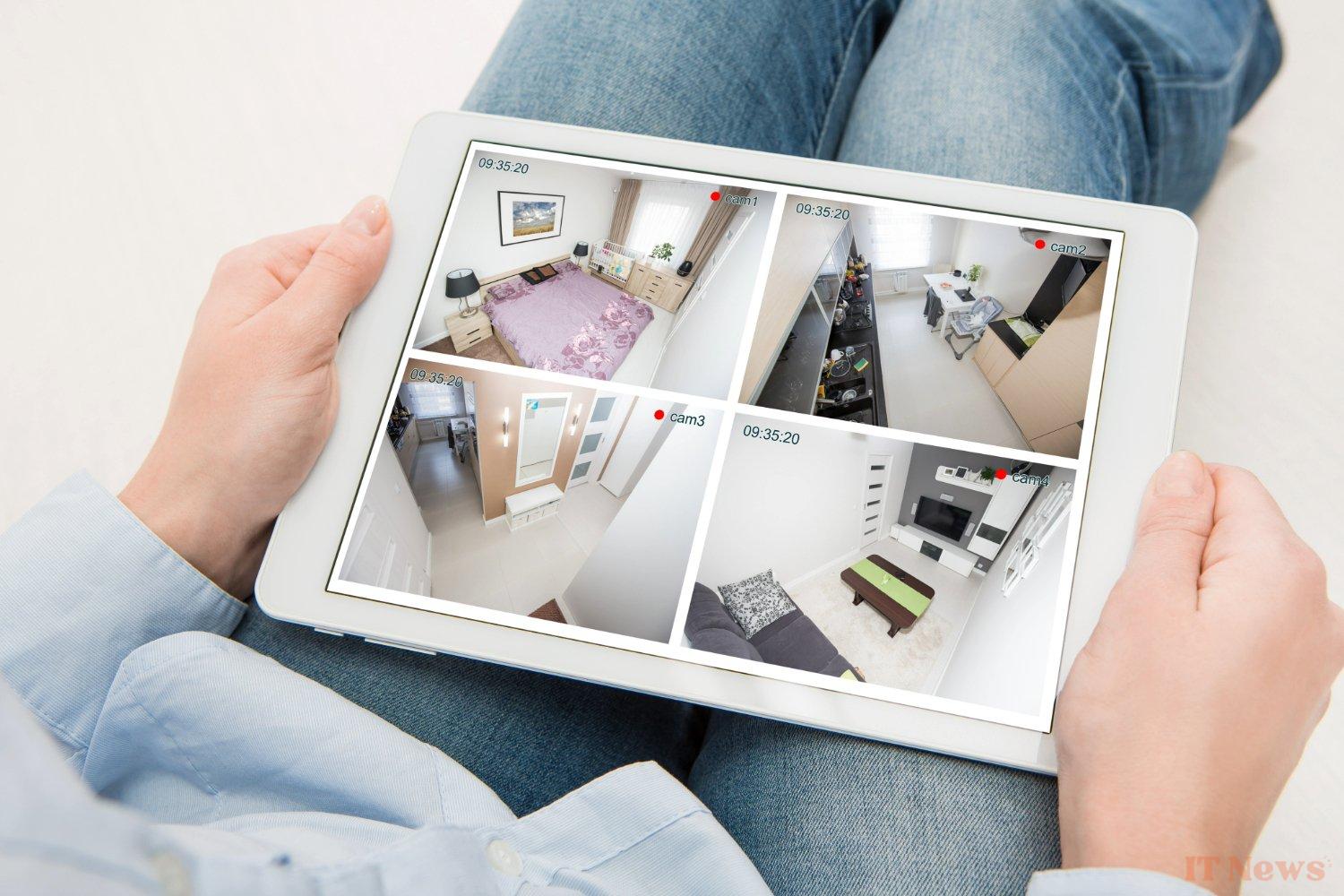In France, the law strictly regulates the installation of surveillance cameras in private residences to protect individual privacy. According to the French Data Protection Authority (CNIL), cameras installed by private individuals must only film their private property. It is illegal to film public roads or neighboring properties, unless the individuals concerned agree.
Surveillance Inside Your Home
When it comes to filming the inside of your own home, the law is flexible, but it does not exempt homeowners from all liability. In France, you have the right to install cameras inside your home for security reasons. However, there are significant restrictions to protect the privacy of those living in the home, especially if these spaces are shared with guests or employees, such as housekeepers or nannies.
It is crucial not to film in areas where privacy is high, such as bathrooms, bedrooms, or other private areas, without the explicit consent of the people living or working there. Even within a family, privacy must be maintained, and filming someone without their consent in these sensitive areas can be considered a violation of privacy.
In France, recordings made by home surveillance cameras can be used as evidence in legal proceedings, particularly in court cases. However, if video recordings captured inside the home are shared outside the family circle or are used for purposes other than home security, this may violate the law. The disclosure of personal recordings without the consent of the people being filmed is strictly regulated. Thus, while cameras can be a valuable tool for the security of property and people within the home, their use must be prudent and respectful of the rights of other occupants of the house.
If a camera films areas where residents or visitors may expect a high level of privacy (cited above), this may constitute a violation of privacy. According to Article 226-1 of the French Penal Code, this can lead to criminal penalties, including fines and potentially prison sentences.
Furthermore, if you live with other people (family, roommates), their consent is essential for the installation of cameras, even for security purposes. Failure to comply with this consent may also lead to legal action for invasion of privacy.
In the event of non-compliance with CNIL guidelines, particularly regarding the reporting of surveillance systems and the protection of collected data, administrative sanctions may be applied. Individuals affected by intrusive surveillance may bring a civil action for damages, which could result in significant financial costs for the camera owner!
Surveillance outside your home
Filming the exterior of your own home with surveillance cameras is legally permitted in France, but under certain strict conditions to avoid invasions of others' privacy. Homeowners must ensure that their cameras do not capture images of public roads or adjacent properties without consent. The CNIL specifies that “the field of vision of cameras must be limited to the boundaries of the resident’s private property.”
If a camera is likely to film part of the public highway or neighboring properties, it is recommended to reconfigure its orientation or to use technologies that limit the range or blur irrelevant areas. These precautions are necessary to comply with CNIL guidelines and respect the privacy rights of passersby and neighbors.
Failure to comply with these guidelines may expose owners to sanctions, including fines or legal disputes. The legislation aims to strike a balance between the right to personal security and respect for the privacy of others, a delicate but essential balance to maintain in the use of surveillance technologies in residential contexts.
Individuals whose privacy has been violated by inappropriate surveillance may file a lawsuit for invasion of privacy. This may lead to compensatory damages for victims affected by these recordings.
According to Article 226-1 of the French Penal Code, it is prohibited to film, record, or transmit the image of a person in a private place without their consent. Failure to comply with this provision can result in up to one year of imprisonment and a fine of €45,000.
Furthermore, if the cameras were installed without the necessary declarations to the competent authorities, such as the CNIL for certain configurations, the person responsible for the installation may be subject to administrative fines. These fines are independent of any civil or criminal penalties that may also be applied.
Owner or tenant, who can install cameras?
Owners generally have the right to install surveillance cameras on their property, provided they comply with applicable privacy laws. This includes ensuring that cameras do not film areas where there would be a reasonable expectation of privacy, such as the interiors of neighboring residences or public roads, and adhering to the aforementioned standards regarding image reporting and management.
Tenants, for their part, must often obtain permission from the landlord before installing surveillance cameras, especially if the installation requires physical modifications to the property (such as drilling holes). Even if no modifications are required, it is recommended to consult the landlord or check the lease for specific clauses regarding the installation of surveillance devices.
In the case of buildings with shared spaces, neither tenants nor landlords may install cameras in common areas (such as entrances, hallways, etc.) without the agreement of the condominium or all tenants, according to the rules established by the condominium or the regulations applicable to multi-family housing.



0 Comments